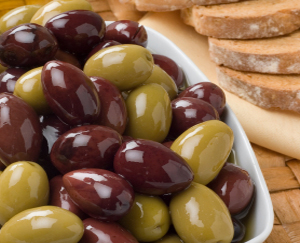Gluten Free
What does following a gluten-free diet mean? That you're embarking on an easy diet with a wide range of health-promoting effects. Instead of dwelling on what you’re giving up, consider that you’re going to enjoy a whole new world of delicious food options to meet your special dietary needs. You’ll be eating seasonally, choosing more fresh fruits and vegetables, focusing on meats, seafood, poultry, legumes, lentils, corn, and rice, and discovering fascinating ancient grains such as quinoa, amaranth, and millet. You’ll be able to eat potatoes, eggs, most cheeses, even chocolate (!)—and enjoy them without guilt because you’ll be taking good care of your body. In fact, you’ll probably end up eating—and feeling—better than ever!
Visit this page for more information about living Gluten Free
---
We carry a large variety of gluten free items, the brands listed below represent just some of the offerings we carry















More Diets

Related Topics
-
For Better Health, Go Mediterranean!
-
Take Care of Your Sweetheart’s Heart
-
6 Simple Ways to Lose Weight
-
Diet Right: Cut Calories, Not Nutrition
-
Wild About Nuts
- By Kimberly Beauchamp, ND
Mediterranean Diet: Great for Health & Easy on the Pocketbook
The Mediterranean diet—which emphasizes fruits, vegetables, nuts, legumes, whole grains, fish, and moderate alcohol consumption, with limited red meat and dairy—is well known for its health benefits. But can the average person actually afford to eat that way? Two studies answer with a resounding “Yes!”
With some planning, there are ways to make meals more cost effective
The benefits are clear
In the first study, published in the Archives of Internal Medicine, researchers investigated the effect of following a Mediterranean diet on the risk of dying as part of the National Institutes of Health-AARP Diet and Health Study. During a five-year period, 380,296 men and women followed a Mediterranean eating pattern, with the following results:
- Women who followed the diet more closely were 12% less likely to die from cancer and 20% less likely to die from heart disease as were women who did not.
- Men who stuck closely to a Mediterranean diet were 17% less likely to die from cancer and 22% less likely to die from heart disease than were men who did not.
Health payoffs without a higher cost
Despite the clear health benefits, knowing it’s a better choice for good health might not be reason enough for some people to adopt a Mediterranean diet if they feel that they can’t afford it. As cost is often perceived as a obstacle to healthy eating, Canadian researchers undertook a different study, published in the Journal of Nutrition, to determine if eating this way really does cost more.
Using a dietary intervention program, women were taught about the health benefits of the Mediterranean diet and how to select and prepare the foods involved. Food cost was then compared with what they usually spent on groceries.
While expenditure for vegetables, fruits, legumes, nuts and seeds, olive oil, whole grains, poultry, and fish increased, it was balanced by a decrease in the amount spent on red meat, refined grains, desserts, and fast food.
“Increased cost should not be considered a barrier to the promotion and adoption of a Mediterranean diet,” the authors concluded.
Pennywise meal planning
With some planning, there are other ways to make meals more cost effective:
- Offset costs. Replace processed foods with dried beans and other legumes, the study’s authors suggest.
- Buy in bulk. Shopping for foods in bulk and then freezing what you don’t need right away helps stretch your dollar.
- Buy produce in season. Sheila Frodermann, a naturopathic doctor in Providence, Rhode Island, points out the benefits: “Canning or freezing fruits and vegetables when they are abundant provides nutritious foods for a fraction of the cost of purchasing them on a weekly basis during the winter time.”
(J Nutr 2008;138:54–9; Arch Intern Med 2007;167:2461–8)











